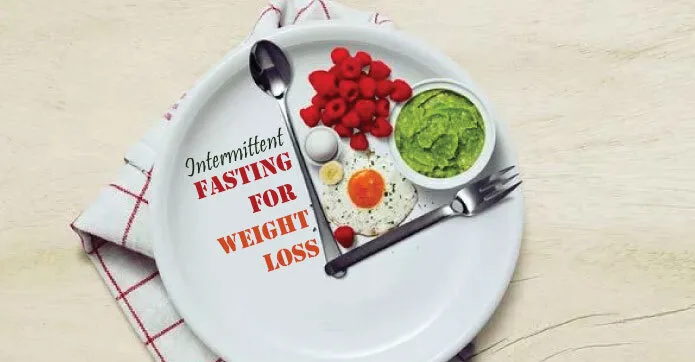In recent years, weight loss strategies have evolved with science and lifestyle trends, but one method has stood the test of time and continues to gain popularity: intermittent fasting. Whether you’re new to dieting or have tried multiple plans with mixed results, intermittent fasting offers a flexible, effective approach to shedding pounds while improving overall health. This 2025 update will give you everything you need to know to get started, stay motivated, and see results.
What is Intermittent Fasting?
Intermittent fasting (IF) is an eating pattern that alternates between periods of eating and fasting. Unlike traditional diets that focus on what you eat, IF focuses on when you eat. This approach can naturally reduce calorie intake and optimize hormone function to promote weight loss and metabolic health.
The most popular fasting protocols include:
-
16/8 Method: Fast for 16 hours and eat within an 8-hour window.
-
5:2 Diet: Eat normally for 5 days and restrict calories (around 500-600) for 2 non-consecutive days.
-
Eat-Stop-Eat: Fast for a full 24 hours once or twice a week.
-
Alternate-Day Fasting: Alternate fasting days with eating days.
How Does Intermittent Fasting Promote Weight Loss?
Intermittent fasting helps with weight loss primarily by reducing calorie consumption. When you limit your eating window, it becomes easier to eat fewer calories without consciously tracking every bite. Beyond calorie control, IF also triggers hormonal changes that facilitate fat burning:
-
Insulin levels decrease: Lower insulin allows your body to access stored fat for energy.
-
Human Growth Hormone (HGH) increases: Higher HGH supports fat loss and muscle gain.
-
Norepinephrine release: This hormone boosts metabolism and fat breakdown.
Combined, these effects make your body more efficient at burning fat, which leads to consistent weight loss.
Benefits of Intermittent Fasting Beyond Weight Loss
While the primary goal might be weight loss, IF offers several additional health benefits:
-
Improved metabolic health: Lower blood sugar and insulin resistance.
-
Enhanced brain function: Increased production of brain-derived neurotrophic factor (BDNF) may improve memory and protect against neurodegenerative diseases.
-
Reduced inflammation: IF can lower markers of inflammation linked to chronic disease.
-
Longevity: Animal studies show intermittent fasting can extend lifespan, though human research is ongoing.
Getting Started with Intermittent Fasting: A Beginner’s Roadmap
Starting any new eating pattern can feel overwhelming, but intermittent fasting is adaptable and beginner-friendly if you follow these steps:
1. Choose the Right Fasting Method for You
If you’re new, the 16/8 method is the easiest to adopt. For example, you might eat between 12 p.m. and 8 p.m., then fast from 8 p.m. until noon the next day. This means skipping breakfast, but you can enjoy lunch and dinner normally.
If 16/8 feels challenging, try the 12/12 approach first: 12 hours eating, 12 hours fasting. Gradually increase your fasting window as you feel more comfortable.
2. Stay Hydrated
During fasting periods, drinking water, black coffee, and unsweetened tea is encouraged to stay hydrated and curb hunger. Avoid any drinks with calories, as they break the fast.
3. Focus on Nutrient-Dense Foods
When you do eat, prioritize whole foods rich in nutrients—lean proteins, healthy fats, vegetables, fruits, and whole grains. This supports your weight loss goals and keeps your energy steady.
4. Listen to Your Body
Hunger during fasting is normal, especially in the beginning. However, if you feel dizzy, weak, or unwell, it may be a sign to modify your fasting schedule or consult a healthcare professional.
5. Be Consistent but Flexible
Consistency yields the best results. Try to maintain your chosen fasting window most days, but allow flexibility for social events or special occasions to reduce stress and increase long-term adherence.
Common Myths and Misconceptions About Intermittent Fasting
Myth 1: You Can Eat Anything During Your Eating Window
While IF is flexible, binge-eating junk food during your eating periods can sabotage your weight loss efforts and health. Focus on balanced meals to maximize benefits.
Myth 2: Fasting Slows Your Metabolism
Short-term intermittent fasting actually boosts metabolism slightly through increased norepinephrine. Prolonged starvation can reduce metabolism, but typical IF routines are safe and effective.
Myth 3: Intermittent Fasting Is Starvation
Fasting involves scheduled eating and fasting periods, not deprivation. It’s a controlled approach to improve how your body processes food.
Myth 4: Fasting Causes Muscle Loss
If done correctly with adequate protein intake and resistance training, IF preserves lean muscle while promoting fat loss.
Who Should Avoid Intermittent Fasting?
Intermittent fasting isn’t suitable for everyone. Avoid IF if you:
-
Are pregnant or breastfeeding
-
Have a history of eating disorders
-
Have diabetes or blood sugar issues without medical supervision
-
Are under 18 years old
-
Are dealing with chronic health conditions without consulting a doctor
Tips to Maximize Weight Loss with Intermittent Fasting
-
Combine IF with exercise: Strength training and cardio enhance fat loss and muscle retention.
-
Prioritize sleep: Poor sleep can disrupt hunger hormones and impede weight loss.
-
Manage stress: High cortisol levels from stress may hinder fat loss.
-
Track progress: Keep a journal or use apps to monitor your fasting schedule and body changes.
Realistic Expectations: How Long Until You See Results?
Weight loss results vary based on individual metabolism, diet quality, and lifestyle. Many people notice initial fat loss within 2-4 weeks, but sustainable weight loss often takes 3-6 months. Patience and consistency are key.
Conclusion: Is Intermittent Fasting Right for Your Weight Loss Journey?
Intermittent fasting is a scientifically backed, flexible, and effective tool for weight loss that fits into modern lifestyles. It’s not just about cutting calories but about optimizing your body’s natural rhythms for fat burning and health improvement.
If you’re ready to take control of your eating patterns and lose weight without complicated diets, intermittent fasting may be the perfect fit. Start slow, stay consistent, and watch your body transform in 2025 and beyond!
